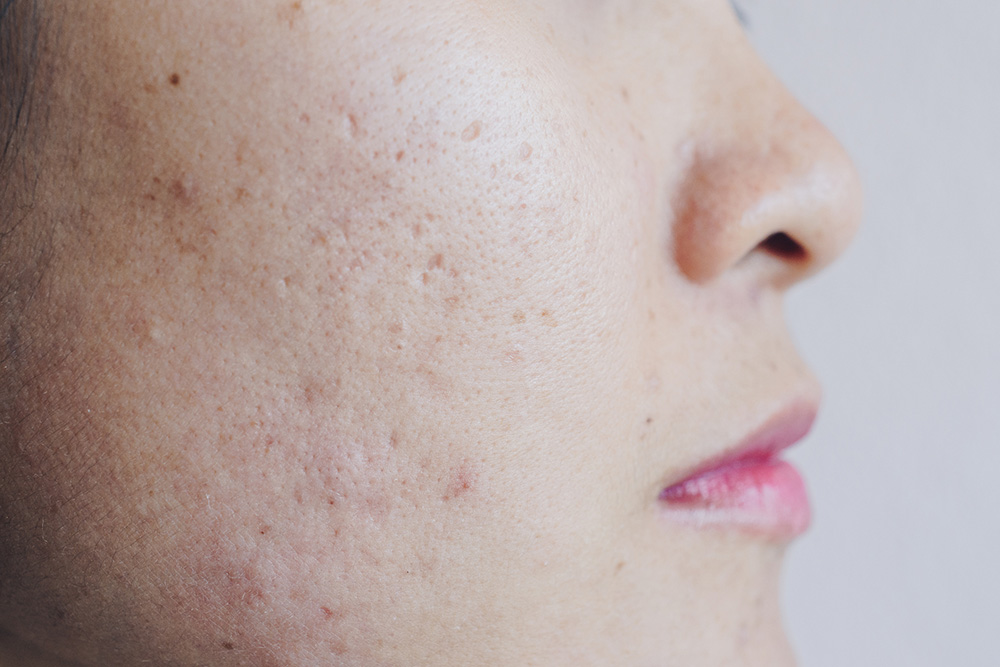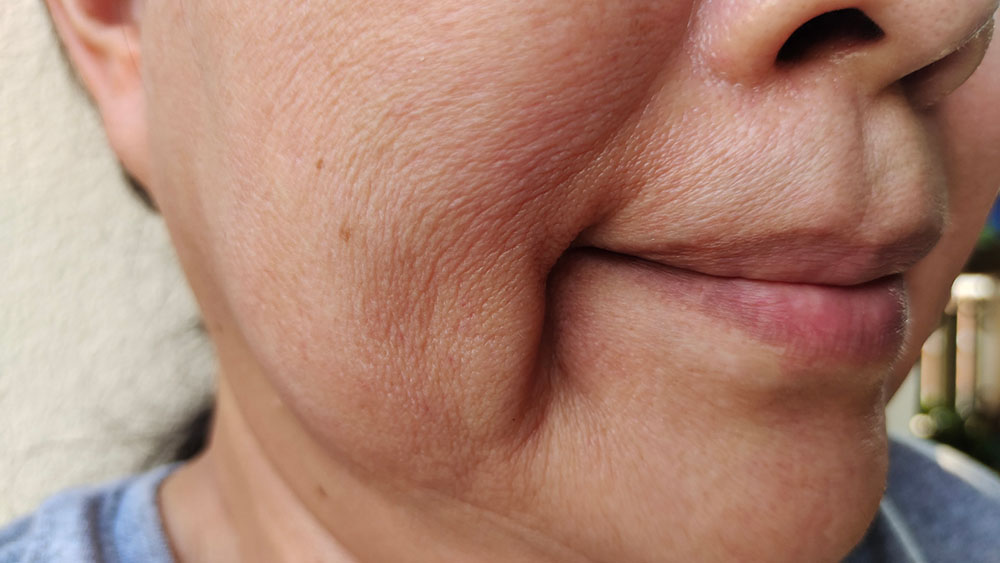Acne is a skin condition that occurs when hair follicles become plugged with oil and dead skin cells. It can often cause whiteheads, blackheads or pimples, and usually appears on the face, forehead, chest, upper back and shoulders. Because it is often caused by a change in hormones, acne is most common among teenagers, although it can affect people of all ages.
Acne can be persistent. Just when you think it has cleared, acne seems to crop back up again. Depending on its severity, acne can cause emotional distress and can possibly scar the skin. The earlier treatment is started, the lower the risk of such problems.
Treatment Options
Treatment of acne often requires a combination of treating active breakouts with medication along with taking action to prevent or minimize future breakouts. The main goals of treatment include:
- Controlling current acne
- Avoiding scarring or other damage to skin
- Making scars less noticeable
Medication:
The first treatment for acne is often over-the-counter (nonprescription) products. These can come in a variety of forms ranging from ointments to creams. If this type of treatment does not work, prescription medications are often the next line of defense. Prescription based acne treatments work by reducing oil production, speeding up skin cell turnover, fighting bacterial infection or reducing inflammation — which helps prevent scarring. Prescription medications for acne might be topical (apply directly to skin), or oral medication taken by mouth. Keep in mind that with most prescription acne drugs, you may not see results for four to eight weeks, and your skin may get worse before it gets better. It can take many months or years for your acne to clear up completely.
Therapies:
DermaBlue offers many different acne therapies that may be suggested in select cases, either alone or in combination with medications.
-
Laser therapy – Targets the bacteria that cause acne inflammation, as well as ‘turns the oil-producing pores off’ for a period of time.
-
Chemical peel – This procedure uses repeated applications of a chemical solution, such as salicylic acid.
-
Extraction – Your provider uses a special tool to gently remove whiteheads and blackheads that did not respond to topical medications.
-
BLU-U or Blue Light Therapy – This is an extremely effective, safe non-drug, non-antibiotic treatment option for active acne. This treatment is safe for all skin types and extremely well tolerated for anyone who desires a non-invasive, natural option to treat acne.
Treating Acne Scars:
DermaBlue also offer an array of procedures that will help to reduce the appearance of scars created by acne. As with the therapies already mentioned, these procedures may be suggested in select cases, either alone or in combination with medications.
- Bellafill® – The only long-term filler that is FDA approved to treat acne scars for longer than one year. In just one office visit, you can safely treat your acne scars and leave feeling confident that you’ll look your best long-term.
- Microneedling – Is minimally invasive, and uses tiny needles to prick the skin in order to stimulate collagen production. This collagen stimulation aids in the healing of acne scars and redness.
-
- RF Microneedling with Genius® – DermaBlue also offers this procedure. The difference with Genius® is that it adds radiofrequency (RF) technology and a state-of-the-art delivery platform to the microneedling process in order to deliver unparalleled precision.
-
- Laser Resurfacing – This is a skin resurfacing procedure that uses a laser to improve the appearance of your skin.
- Light Therapy – Certain lasers, pulsed light sources and radio-frequency devices that don’t injure the epidermis can be used to treat scars.
- Skin Surgery – Using a minor procedure called punch excision, your doctor cuts out individual acne scars and repairs the hole at the scar site with stitches or a skin graft.
Natural Acne Treatments:
Some natural acne treatments may be helpful in reducing acne inflammation and breakouts:
- Diet: A diet high in refined starches, sugars, excessive dairy and fried foods may make their acne worse. Eat ‘whole foods as much as possible, without added sugar, refined starches. Add more fruits, vegetables and healthy fats to your diet, such as coconut oil, flaxseed oil, olive oil, avocado/ avocado oil.
- Alpha hydroxy acid: This natural acid is found in citrus fruit and other foods. When applied to your skin, alpha hydroxy acid helps remove dead skin cells and unclog pores. It may also improve the appearance of acne scars. Side effects include increased sensitivity to the sun, redness, mild stinging and skin irritation.
- Azelaic acid: This naturally occurring acid has antibacterial properties. A 20 percent azelaic acid cream seems to be as effective as many other conventional acne treatments when used twice a day for at least four weeks.
- Zinc: Zinc in lotions and creams may reduce acne breakouts.
Please keep in mind that more research is needed to establish the potential effectiveness and long-term safety of these and other natural acne treatments.
At DermaBlue, our team of doctors, RNs, estheticians, and certified specialists are here to answer any question you have regarding acne care, treatment, and prevention. Contact us today to learn more about our services and to schedule an appointment.





